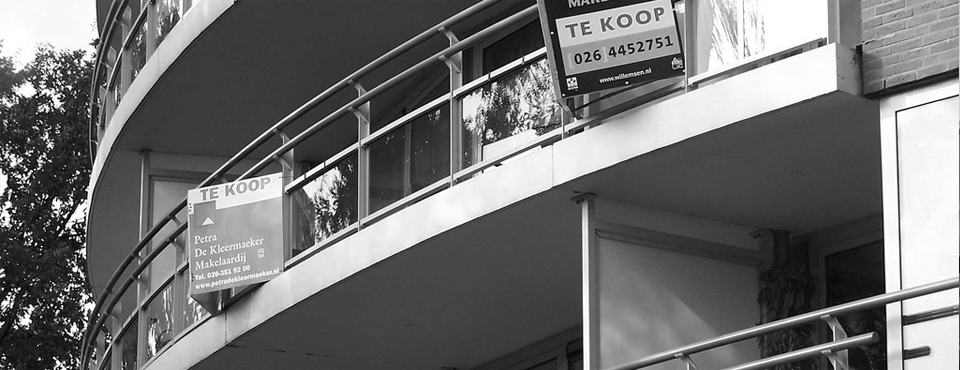
Why are homes sold above the asking price?
In 2016, more than half of the homes offered for sale in Amsterdam were sold above the asking price. This percentage was also high in other Dutch cities. But why would one pay more than the asking price? Would one pay more in a supermarket for a candy bar than indicated? No. In fact, people almost never pay more than the asking price for expensive consumer goods such as cars. For goods that we do not buy on a daily basis, buyers and sellers do negotiate. Normally, the final selling price lies between the opening bid and the asking price.
The curse of the winning bid
In a recent publication, Jan Rouwendal and Hans Koster argue that a change in the seller’s strategy plays an important role in explaining the substantial increase in the number of homes sold above the asking price. Brokers indicate that a lower asking price leads to an increased number of potential buyers bidding for the property. When the number of bidders for a home is high, the negotiating power of the buyer decreases, and the expected sales price will increase. More specifically, when the number of bidders is high, and there is uncertainty about the quality of the property, economic theory predicts that the highest bidder always pays too much: the so-called “winners curse”. When a large number of people estimate the value of a home, the average estimate is likely to be quite correct. However, as the winner made a relatively high – and probably incorrect – estimate, he has paid too much for the purchased item. The question is, of course, whether such a curse of a winning bid is a factor in selling above the asking price.
Is a relatively lower asking price profitable for the seller?
The authors compare (almost) identical homes in the same street and show that homes sold above the asking price had a lower initial asking price, a shorter selling time and a 3.5% higher selling price. This implies that setting a lower selling price is profitable for the seller: this strategy attracts more buyers and therefore increases the probability of a disproportionately high bid. This is, of course, detrimental for the buyer who is paying more for the property.
For a buyer, it is important to stay rational and avoid the risk of paying more than the value of the property. The officially assessed value (WOZ value) and, if available, the most recent assessed value by realtors, can provide useful information on the correct valuation of a home. It is wise to think twice before bidding more than the price indicated by these two guidelines.
This blog is based on:
Koster H., Rouwendal, J. (2017). Verkopen boven de vraagprijs: Buitensporig of nieuwe werkelijkheid?(Onderzoeksrapport), ASRE papers 2017-05.
Koster, H.R.A., Rouwendal, J. (2017). Verkopen boven de vraagprijs: Buitensporig of nieuwe werkelijkheid? Real Estate Research Quarterly 17(3): 6-18.
